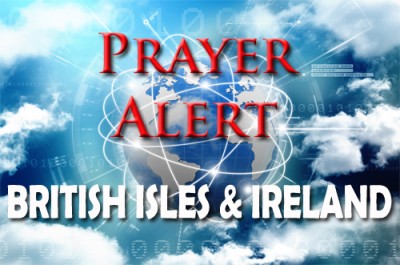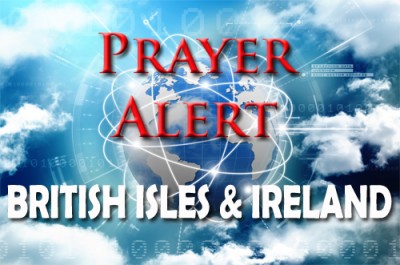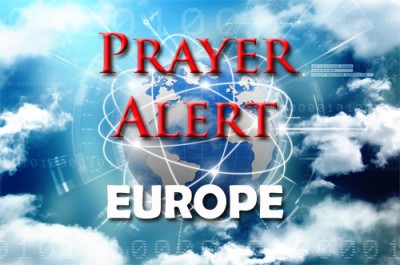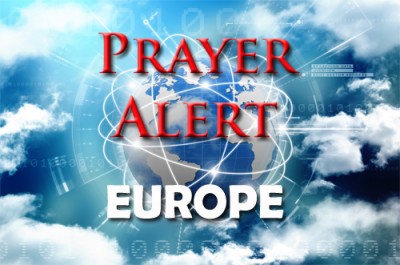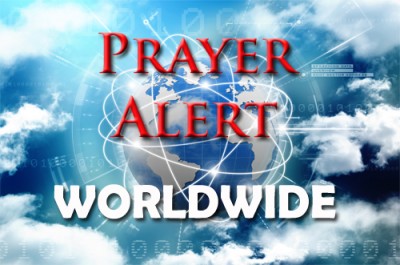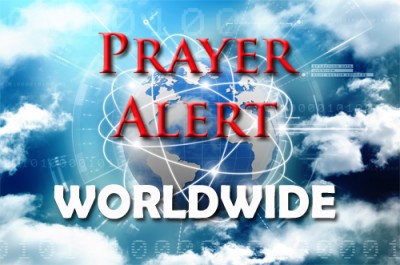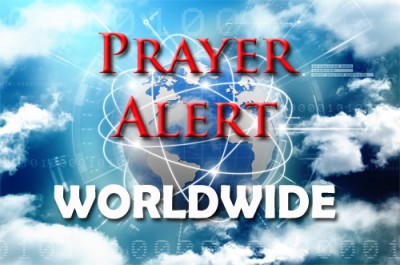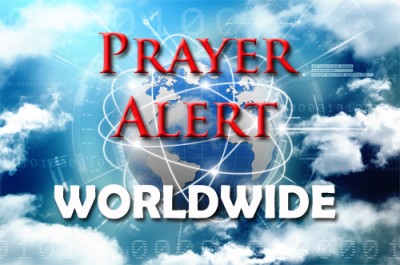‘The equality law needs to change'
28 Oct 2016Ashers Baking Company was asked to make a cake saying 'support gay marriage' but declined, saying it would compromise their Christian beliefs. LGBT activists launched a civil action against Ashers. Throughout legal proceedings Ashers repeatedly said their refusal to bake the cake had nothing to do with discrimination. On Tuesday they lost the case and said, ‘We’re extremely disappointed with today’s ruling. If equality law means people can be punished for politely refusing to support other people’s causes, then equality laws need to change. The judges accepted that we did not know Mr Lee was gay and that was not the reason we declined the order. We have always said it was never about the customer, it was about the message. The court accepted that. But now we are being told we have to promote the message even though it’s against our conscience.’
Winter night shelters
28 Oct 2016Night shelters supported by Church Urban Fund (CUF) are to increase their provision to nearly 4,000 bed spaces this winter in response to growing homelessness. Over 800 volunteers will work in shelters in Manchester, Salford, Birmingham, Mansfield, and Great Yarmouth, backed by CUF and Church of England dioceses. Night shelters are often more than just somewhere to sleep. For example, a night shelter in Manchester offering twelve beds for seven nights a week will double the length of time it operates to six months when it opens at the end of October. Another Manchester night shelter, based in seven locations, will offer 24-hour care to homeless guests including an evening meal and bed and breakfast,with advice and support available during the day. Guests and volunteers eat together each night; sometimes they play pool or table tennis together and develop positive relationships.
Spain: storm in a petrol pump?
28 Oct 2016Russia withdrew its request to refuel its warships in a Spanish port, so Moscow and Madrid both found a diplomatic way to get themselves off a difficult hook. However, the passions aroused by Spain's willingness to refuel Russian vessels were real, especially since this time the Russian task group was on its way - as the British Defence Secretary Michael Fallon put it - ‘to bomb Syrian civilians in Aleppo’. How would it look, just as NATO defence ministers met to strengthen their forces in the Baltic, Poland and around the Black Sea, if one of their members was helping a Russian task group on its way to a conflict where many Nato governments have accused Moscow of carrying out war crimes through its indiscriminate bombing?
Hungary: government influence on media
28 Oct 2016For decades Europe has maintained an exemplary level of respect for democratic standards and human rights, and has generally continued to do so in recent years despite serious economic turmoil. Nevertheless, many countries have developed problems related to their treatment of immigrants and minorities, and press freedom faces threats in a number of states. Through its presence in Brussels, Freedom House (an independent watchdog organisation) works to address these issues and to increase Europe’s role in supporting the spread of democracy abroad. In response to a businessman close to Hungary’s prime minister purchasing the country’s most prominent opposition newspaper, Nepszabadsag, last Tuesday, Freedom House said that the action shows the government’s growing influence over Hungary’s media. The sale took place two weeks after its previous owner unexpectedly suspended publication, blocked its journalists’ access to their emails and offices, and pulled the paper’s online edition.
Iraq: what you need to know about Mosul
28 Oct 2016It was from Mosul, Iraq's second largest city, that IS took to the world stage in 2014. It is now the last major IS stronghold, so the battle for Mosul is a critical and decisive one. Thousands of lives hang in the balance: innocent civilians, Iraqi soldiers, Islamic State fighters - Jesus died for each one. What happens in Mosul directly impacts the lives and eternities of many. Up to 1.5 million civilians are still in Mosul. Up to 5,000 IS fighters also remain. Thousands of Iraqi soldiers, Kurdish fighters, and Shia militiamen are involved. It is feared that IS will use human shields and chemical weapons. Those who escape Mosul face ill-equipped refugee camps unable to provide for their basic needs. Beyond the desperate humanitarian realities, these masses are largely unprepared for eternity. Awaiting a military deliverance, most remain unaware that their only true Deliverer is Jesus.
Four Arab guests who came to visit Efrat Local Council head, Oded Revivi, at his ‘Sukkah of Peace’ last week during the Jewish festival of Sukkot (Feast of Tabernacles) were imprisoned for their neighbourly act by the Palestinian Authority They were released on the start of the Jewish holiday of Simchat Torah, after intervention by Israeli Prime Minister Benjamin Netanyahu, who appealed to world leaders on behalf of the Palestinian Authority citizens who had done nothing more than act as good neighbours and who were punished by their government in response. The four were accused of ‘meeting baby killers’ the day after visiting the sukkah, where they sat with Jewish neighbours and talked about peace. ‘Where is the intervention of human rights organisations?’ Netanyahu asked world leaders. ‘These groups prove again and again that they have no real interest in human rights, but are interested only in shaming Israel.’
Turkey: entry ban for Christian student
28 Oct 2016Ryan Keating, a Christian PhD student in the department of Philosophy of Religion at Ankara University has requested prayer for his situation as his residency has been cancelled and he has been issued with an entry ban into Turkey. On 17 October Ryan returned to Turkey after a week-long trip abroad. At the airport, police took him into custody and told him that he had been issued with a life-long entry ban into Turkey. No explanation was given as to the reason for the ban despite Ryan asking for information. Ryan had Turkish residency because of his enrolment at Ankara University. Ryan’s wife Ness and their children remain in Ankara, and it is not known if their residency has also been cancelled. Ryan was involved with the Ankara Refugee Ministry and is a member of Kurtulus Church. It is believed the entry ban is related to these activities, which are completely legal.
Ukraine: bitter winter brings great suffering
28 Oct 2016The Ukraine war is entering its third year of daily bombardment. Homes, churches and businesses are ruined. The conflict is in the ‘Grey Zone’ between western Ukraine, held by the army, and the eastern Donetsk and Lugansk regions held by separatist forces. Those who could flee the Grey Zone have left. Those remaining are the most vulnerable - families with children, widows, the elderly, the sick, people with disabilities, and those displaced by conflict. Most factories have closed, miners have not been paid for seven months, and people can’t support themselves. Life is hard. There are no government pensions or social security, and some towns lack water. In November temperatures plummet to -20°C (-4°F). People cannot afford coal or gas for heating. The winter temperatures will kill. Western Ukraine churches have provided basic crops in season - potatoes, tomatoes, cabbages and carrots. Russian churches are providing food in eastern Ukraine, prioritising elderly church members, but they do not have the resources to help all who are in need.
